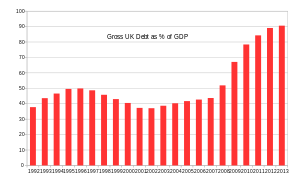With the dust from the 2014 FIFA World
Cup having settled the opportunity to revisit the 'soccermeters' published in
the phoney war before the World Cup presents itself. These tools appeared as
office timewasters in the weeks before the tournament with a mission to keep
fans entertained before the big event got under way. How did these now
forgotten tools get on at predicting the outcome of the tournament?
Slate.com offered this soccermeter which eliminated teams from
the competition on the basis of various footballing and non-footballing
metrics. Footballing metrics seem roughly to fare better, 'tournament history'
having predicting Brazil as winner, but Germany getting eliminated in the semis
- although Italy were expected to face Brazil in the final. Slate also told us
that Brazil would win on odds, although they would eliminate Germany in the
semis and face Argentina in the final. Germany's 7-1 victory over Brazil
certainly stunned the betting markets. FIFA ranking proved a completely
inaccurate predictor, placing Spain as winners, though at least they were
expected to face Germany. Under this model, however, Argentina would have
been eliminated in the quarters and the Netherlands dropped out in the group
stages.
The Women's Soccer metric showed, perhaps, how far behind the
'established' nations are in women's football, with the United States predicted
to win, although beating Germany in the final - England and Japan being
expected to reach the semis! Economic indictors also favoured the US, placing
the nation top in terms of wealth (on GDP per capita terms) and population.
With wealth placing Australia as runners up, unsurprisingly neither
factor was particularly decisive, though the wealth metric did see Germany and
the Netherlands reach the semis. If UN Security Council membership was used,
England would triumph. Political importance doesn't improve footballing
performance then. Much to the likely chagrin of Greek, and southern
European observers more generally, Germany does triumph under one economic metric
- Standard and Poor rating. Perhaps this puts a new complexion on the
images of Angela Merkel celebrating with her nation's triumphant footballers.
And, if we were to believe that correlation leads to causation, adds new
urgency to the need for Britain to get its national debt under control...
The Economist's Daily Chart on June 4th offered another attempt to
predict the tournament. They provided a 'probability circle' along with a
straight bar graph of probability of winning the tournament, working on the
premise that experience matters. The data was based on the outcome of every
FIFA game since 1993 adjusted for ranking when the teams played each other and
home advantage. Brazil were heavily favoured under this particularly
soccernomic methodology, with a formidable 21% chance of lifting the cup. The
Germans had only a 7.5% chance of winning the cup, and also only a 7.5% chance
of getting past Brazil in the semis. The Economist's prediction would
suggest that Germany managed to play above the expected level, although it
would seem more likely that they over-rated home advantage. The use of
historical data did also not fare well, perhaps suggesting they also
over-estimated the role of path dependence - Spain were given a 7.6% chance of
winning, marginally better than Germany, while Portgual were rated fourth on
6.9%. England were perhaps more realistically rated at 3%, and Argentina
at 6.4%, but the Netherlands were considered complete outsiders at 2.3%.
As the
outcome of a football match depends heavily on the players on the day, along
with a dose of luck, trying to use the types of data that were used by the aforementioned
tools to predict football matches seems in some ways to be a fool's errand. But it is an entertaining topic and we applaud these two attempts at soccer meters which have added greatly to the excitement and enjoyment of the 2014 FIFA World Cup.
In conclusion - if you want to predict the tournament then it
would surely be wiser to use the data that betting companies draw upon when
calculating their odds, or better still to find out how Paul the Octopus did
it in 2010!







No comments:
Post a Comment